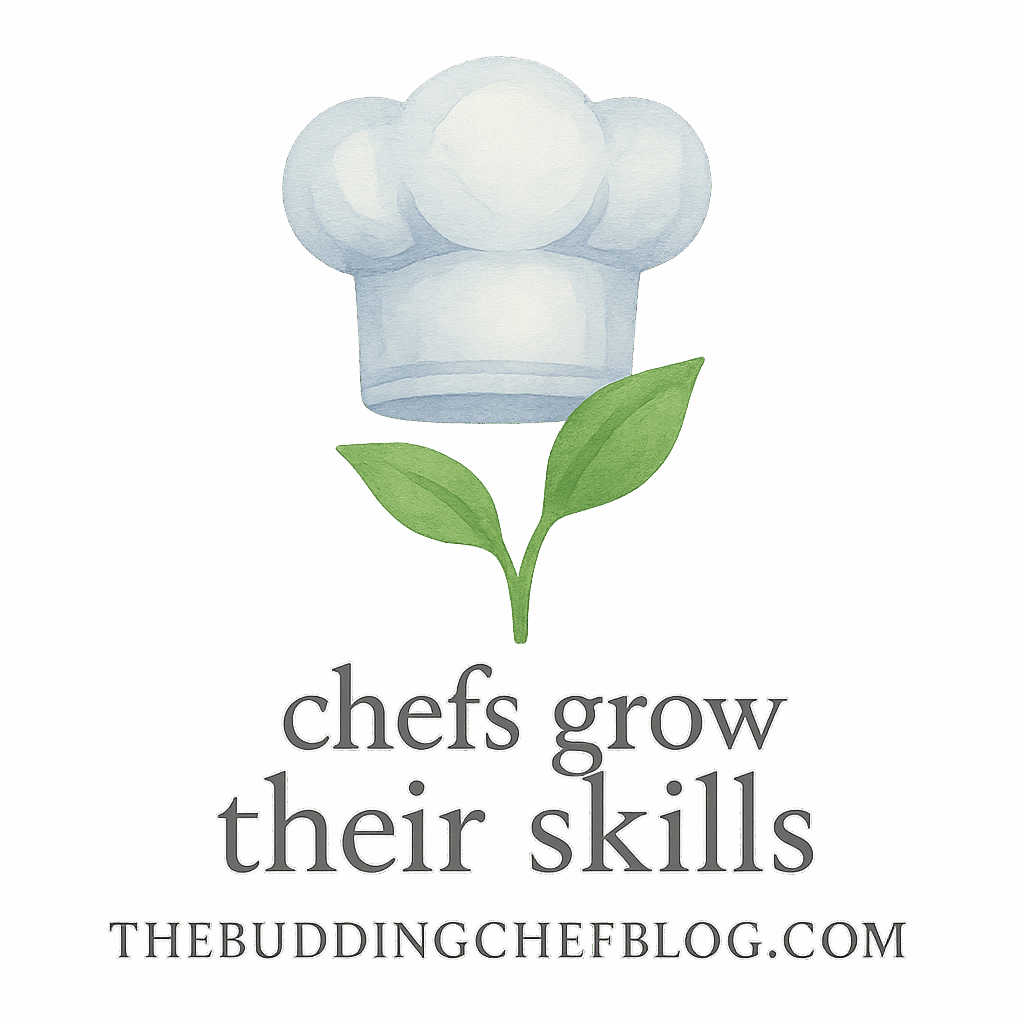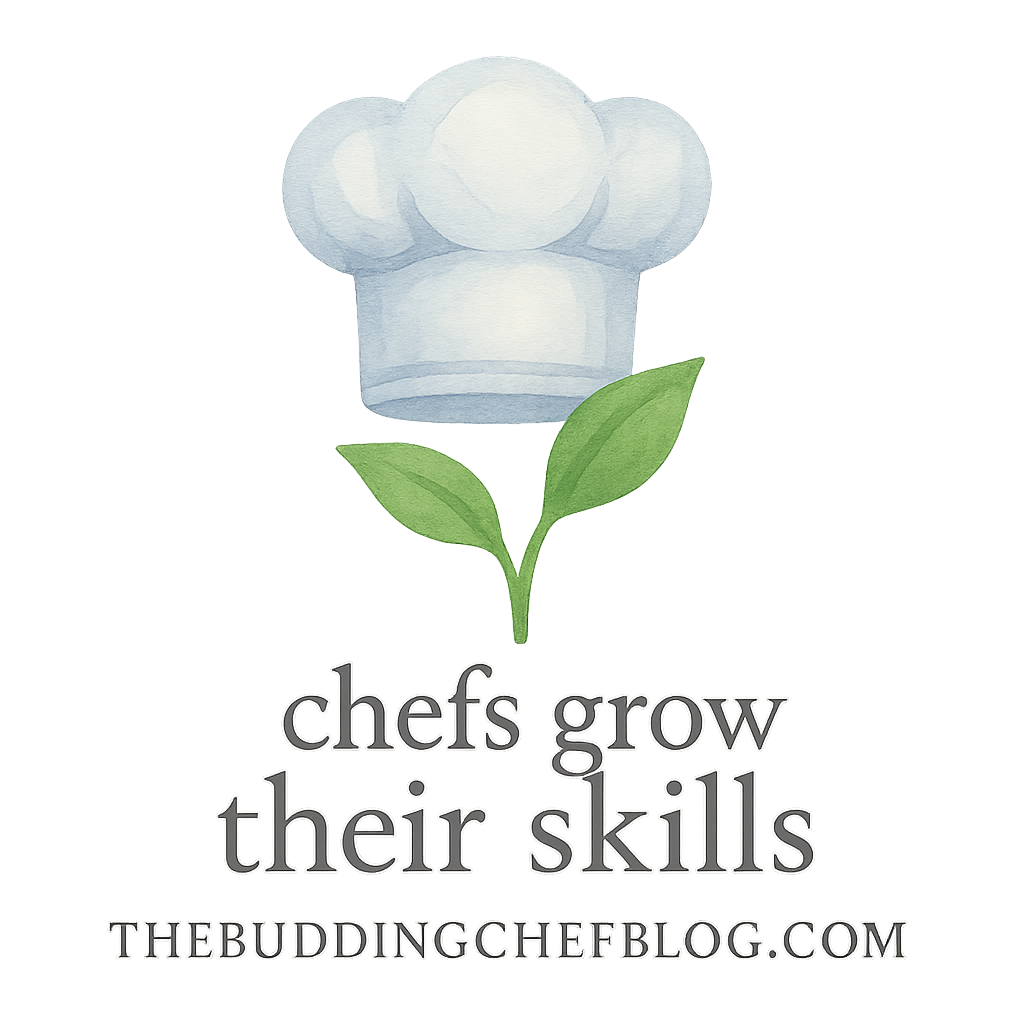Let’s be real—every world-class chef started with burnt toast, over-salted soup, and a kitchen that looked like a tornado blew through. If you’re a beginner chef, you’re not just learning recipes—you’re shaping your mindset. And truth be told? Mindset is your most important ingredient.
This article will stir up the six powerful mindsets that separate average home cooks from the culinary stars in the making. Grab your apron—it’s time to cook up some confidence.
Why Mindset Matters in the Kitchen
Cooking is as much about attitude as it is about technique. You can follow a recipe to the letter, but if you’re stressed, unsure, or rushing through every step, the result will taste off—literally and emotionally.
A strong mindset helps you:
- Stay calm under pressure
- Learn from kitchen blunders
- Push through the tough (and sticky) moments
The Journey of Beginner Chefs
The Struggles Are Real
We’ve all been there. Raw chicken inside. Charred outside. Forgotten ingredients. Tears over onions—and mistakes. But that’s where the learning lives.
Explore more about this in Common Beginner Mistakes in Cooking.
Every Great Chef Was Once a Beginner
Even pros had to look up how to boil an egg. The journey from novice to ninja is real—and you’re right on track.
Start by understanding the Basic Cooking Techniques every beginner should master.
1. Growth Mindset: Embrace Mistakes Like Recipes
Learning Is a Lifelong Dish
Beginner chefs who succeed don’t fear mistakes—they flavor their journey with them. Each burnt dish teaches more than a perfect one ever could.
Mistakes Aren’t Failures—They’re Flavor!
Think of mistakes like too much garlic—sure, intense, but there’s something to learn. Great dishes are built on trial and error.
Check out our advice on Improving Cooking Skills for consistent progress.
2. Curiosity Mindset: Be Hungry to Learn
Always Ask “Why?” in the Kitchen
Successful beginner chefs are like curious toddlers—always asking why. Why does lemon brighten flavor? Why rest dough? The more questions you ask, the deeper your understanding gets.
Explore flavor, tools, and ingredients via Ingredient Knowledge.
Explore Ingredients Like a Scientist
Turn your kitchen into a lab. Try new herbs. Smell spices. Research what cumin actually does to stew. Become obsessed—in a good way!
For more on mastering ingredients, peek at this tag on ingredients.
3. Discipline Mindset: Practice Makes Perfect Pasta
Repetition Builds Muscle Memory
Cooking is a skill. Like learning guitar or riding a bike, repetition builds confidence. The first omelet may look sad—but the fifth? Golden perfection.
Get plenty of ideas for Recipe Practice to start your training.
Stick to the Basics First
Before fancy soufflés, get comfortable with stir-fries and one-pot meals. Stick with core recipes. Simplicity isn’t boring—it’s foundational.
Explore beginner-friendly content at Beginner Chefs Tag.

4. Resourcefulness Mindset: Do More with Less
Working on a Budget Doesn’t Mean Bland Meals
Most beginner chefs start with tight wallets. That doesn’t mean you can’t make magic. In fact, being resourceful often leads to creativity.
Start your affordable cooking journey at the Affordable Tag and Budget Tag.
Use What You Have, Upgrade Later
Don’t let a lack of gadgets stop you. Use a butter knife if that’s all you have. Upgrade later—after you’ve proven your dedication.
Learn more about creative use of Kitchen Tools & Equipment to stretch your skills.
5. Confidence Mindset: Own Your Apron
Don’t Let Doubt Simmer Too Long
Doubt is the sneaky seasoning that ruins everything. Instead, wear that apron like a cape. Confidence grows every time you cook.
Explore tips for Professional Growth to boost your cooking identity.
Trust Your Tastebuds
No need to always follow the recipe word-for-word. Taste. Adjust. Develop your own flair. Beginner chefs who listen to their palate find their cooking soul faster.
6. Patience Mindset: Slow Cooking Wins the Race
Cooking Is a Journey, Not a Race
Beginner chefs often want instant success. But good food—and skill—takes time. Allow yourself the grace to simmer slowly.
Time and Temperature Are Secret Weapons
Low and slow isn’t just for ribs. The best dishes require patience—just like your growth as a chef.
Learn how Meal Planning can reduce the pressure and help pace your practice.
Tying It All Together: The Secret Recipe to Success
Let’s mix those mindsets together:
- A cup of curiosity
- A tablespoon of discipline
- A splash of confidence
- A dash of patience
- A heap of resourcefulness
- And a generous serving of growth
That’s the real recipe for success. Whether you’re frying your first egg or plating up your first homemade curry—these mindsets fuel progress more than any fancy knife ever could.
And remember, tools help—but mindset leads. Explore some beginner essentials in the Essentials for Chefs section to support your journey.
Conclusion
Being a beginner chef doesn’t mean being a bad one. It means you’re just getting started. And with the right mindset, you’re already ahead of the game. So burn the toast. Oversalt the soup. It’s all part of the process.
Each mistake is just seasoning for your future success.
So the next time you pick up a pan, ask yourself: What mindset am I bringing into the kitchen today?
If it’s one of these six—you’re on your way to becoming a budding chef worth their salt.
Hungry for more? Check out more tips, stories, and tutorials at The Budding Chef Blog—your new favorite culinary playground.
FAQs
1. What’s the most important mindset for beginner chefs?
The growth mindset. It allows you to embrace mistakes and keep improving without frustration.
2. How can I stay confident if my cooking isn’t great yet?
Celebrate small wins and taste everything. Confidence builds with every meal you cook.
3. Do I need expensive tools to succeed as a beginner chef?
Not at all. Start small and upgrade over time. Explore more at Cookware Tag.
4. How often should I practice cooking as a beginner?
Aim for 3–4 times a week. Repetition builds comfort. Use Practice Tips to keep motivated.
5. What meals are best for beginner chefs to start with?
Simple stir-fries, pasta dishes, and soups. Try content from the Cooking Skills tag for ideas.
6. How can I be creative with limited ingredients?
Use substitutions and pantry staples. Visit the Budget Tag for inspiration.
7. How do I overcome fear of cooking for others?
Start small. Cook for a friend or roommate. Your confidence will grow each time you serve with pride.


